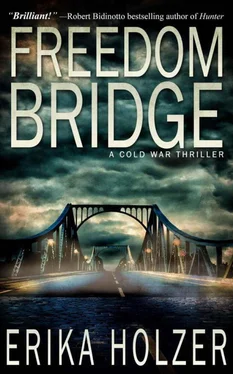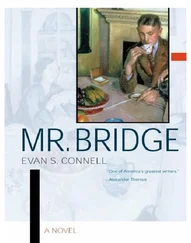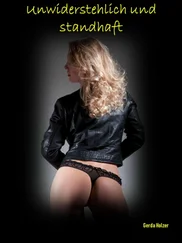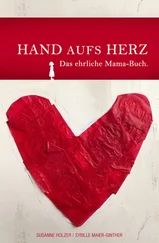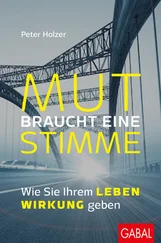“So where is he?”
“Down the road a piece.”
“Cherner, you speak Russian, right?” First Sergeant Al Rosen bellowed. “Move your ass, soldier!” he said without waiting for a reply. “You too, Doc. And don’t forget your stuff.”
The two of them double-timed it up the dark road, straining to make sense of the silhouettes clustered about a small truck with its headlights switched off. “International Red Cross” was stenciled on both doors.
The flames of a small bonfire illuminated the scene. “Cherner? Brenner? Over here,” the CO called out. Next to the fire stood a man in a shabby civilian overcoat with curly red-blond hair. “Mr. Johannsen here is with the Red Cross. Take a look at these kids, Brenner,” the CO ordered. “See what you can do for them.”
“ Kids, sir?”
“Yeah, kids.” The CO turned on his flashlight and moved its powerful beam about five yards further down the road. The light paused when it fell on a pair of tiny bare feet, and then moved up to the huddled form’s nearly skeletal body.
Then another child. Another…
There were ten of them. The oldest looked to be about twelve. She was holding tightly to the hand of the youngest, who couldn’t have been more than three. The rest seemed to be between four and ten years old. Brenner bent down for a closer look, and then gingerly examined them one by one. Girls with stringy matted hair. Boys whose heads had been shaved. Their tattered clothes and swollen stomachs, their enormous eyes staring out of bruised emaciated faces, gave them the look not of children, Brenner thought uneasily, but of aging dwarfs.
The CO, a stubby man with sharp probing eyes, angrily stuffed his hands into the pockets of his field jacket. “Talk to the older child, Cherner. She seems to be in charge of the others. Tell her we’re here to help them.”
“Мы здесь помочь вам,” Cherner translated.
The child stared. Then, “Нет не разговаривать русский,” she replied. “I not speak Russian.”
Cherner took a closer look at her. The same Nordic coloring as his own—blond hair, blue eyes. Before his parents had emigrated to America and their name, Chernovsky, had been shortened to Cherner, his mother said people wrongly assumed they were Norwegian…
Cherner cleared his throat. “Зробіть ви розмовляйте Українською?” “Do you speak Ukrainian?”
“Так.” “Yes.”
He turned to the CO. “They’re Ukrainian, sir.”
“Talk to them. Find out what this is all about.”
Cherner spoke to the girl in quietly reassuring tones. After a few minutes, she answered him haltingly.
As soon as Brenner did what he could medically, Cherner steered the kids to First Sergeant Rosen, where GIs began feeding them Army rations. Spam, sausages, biscuits—and the most popular item—chocolate bars. It was obvious the children had never tasted anything like chocolate in their lives. The First Sergeant was beaming. Some of the GIs were teary-eyed.
Cherner glanced at the stenciled words—International Red Cross—on the doors of the small truck. “How were you able to rescue the children?” he asked Johannsen.
“You know about the camps?” Johannsen asked.
Cherner and Brenner glanced at each other. Cherner nodded grimly.
“A concentration camp called Sachsenhausen is not far from here—about 22 miles north,” Johannsen said. “Back in April, it was directly in the path of a fast-moving Russian armored column. The Nazi commandant, an SS Colonel, had standing orders from Himmler to ‘evacuate’ the camp before the Russians got there. I tried to persuade him to release the survivors—especially the children. He just smiled and began moving everyone out in two seemingly endless columns. Sick, starving, half-dead creatures. They were prodded along by bayonets. Those who couldn’t keep up were shot and left where they fell…”
Johannsen shuddered at the memory.
The older girl, still holding the three-year-old, sidled over to Cherner.
“I ran my truck beside the line of march next to the commandant who was in the lead,” Johannsen continued. “I implored him to free at least some of the children. That perhaps he had children of his own. When he smiled too, I figured he was about to move on without answering. Damned if he didn’t look down from his horse and say, ‘Mr. Johannsen of the International Red Cross, I can see that these ten children are together. Consider them a parting gift to your fine organization as a token of my good will.’ The older girl, here, took me for an American,” he continued. “I don’t speak her language, but it was obvious from the start what she and the older kids were terrified of. ‘Nyet Russkies. Nyet Russkies,’ they repeated over and over.”
Cherner turned to his CO. “They have good reason to be terrified, sir,” he said in a voice choked with emotion. “The Russians consider it a sport to kill Ukrainians—at least the ones they don’t use as laborers or cannon fodder.”
“What did you find out from the girl?” the CO asked.
“Her name’s Irina. Their parents are dead. She as much as said it’s up to her, now, to protect the others. Little Mother,” he said softly as the girl, eyes partly hidden by her matted hair, hugged the three-year-old to her chest. “What shall I tell her?”
“That we’re Americans,” the CO said tightly. “That we’ll find a place to hide them where they’ll be safe from the Nazis and the Russians.”
“I have to go back,” Johannsen told the CO. “There may be wounded survivors in those ditches,” he said bleakly. Johannsen shook the CO’s hand, nodded his thanks at the GIs, got into his small truck, and drove off.
“Go get the deuce-and-a half, Cherner,” the CO ordered. “You and Brenner take the kids. The rest of us will walk. There’s a deserted farmhouse a few miles back, not far from the river. Wait for me there. And Cherner?”
“Sir?”
“Keep your lip buttoned. You, too, Brenner. The fewer people who know about this the better. It never happened.”
* * *
Under the protection of the CO, and with the connivance of other troops during the few weeks after the Americans moved into their occupation zone, the Ukrainian children were also moved several times. They were being cared for by one of the few remaining orders of Catholic nuns Hitler hadn’t decimated. Most of the GIs who’d been helping the children initially had moved on, losing track of them.
Kurt Brenner hadn’t thought of them at all, too preoccupied with how to speed up his pending discharge. He’d already been admitted to Harvard Medical School, but there was a problem. He wasn’t due to be discharged for three more months—October 1945—and classes began in late August. Harvard had made it clear that if Brenner couldn’t start with his class, he’d have to wait until the following academic year.
Like hell I will.
“Medic!” a voice shouted.
Brenner finished his sandwich, tossed a half-full can of beer into the muddy river, and watched as the swift current sent it spinning downstream. He hurried up the steep incline of the riverbank to Glienicker Bridge, where the American Corps of Engineers, aided by liberated Ukrainian workers, had floated an unstable pontoon bridge across the Havel River.
Permanent repair work was progressing well. At nearby Ceceilienhof Palace in Potsdam, GIs were replanting hedges. A line of slow-moving 21/2-ton Army trucks, loaded with building materials, headed for the Palace to repair walls, ceilings, and moldings. Brenner had been detailed to the general area as a medical corpsman—by then, mostly treating GIs with construction injuries.
Читать дальше
